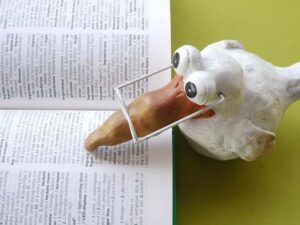Reading
IELTS Reading: Read, read, read!
Last updated on September 30, 2020 by Scott Somerville
In this lesson I am going to give you some advice that will improve not only your reading skills, but also your writing, speaking and listening skills. We will discuss why it is important for your IELTS and your general level of English. To end with I will make some suggestions as to where you can find materials to read.
What should you read?
Your first question when being told to read more is probably what should I read? The rather simple, though possibly unhelpful, answer is anything. Or let me be a little more precise: anything that interests you. Now as I don’t know what interests you it is difficult to offer more specific suggestions, but the most important point is that you find whatever you read interesting. The only way that you are going read in English more frequently is to read things you are actually interested in.
So I think that we have sufficiently established that what you read should be interesting, but how do you actually know that an article or piece of writing will actually interest you? For this I’d like you to think about what you do when you pick up a newspaper, look at an online news site or browse any other website with articles. Do you read everything? Every single page? Every article?
I am guessing that the answer is no. What you probably do is read the title or headline, read the first paragraph and then look very quickly at the rest of the piece. Then you have a good idea whether this is an interesting article that you actually want to read in full. This is a technique called skimming and it is very important to the reading part of the IELTS Test as it allows you to read more in a short space of time. Also some of the question types are designed to test your ability in skimming.
So what I would like you to do is find an interesting article every day, read it and then tell somebody about it. This is possibly something that you do already in your own language. Such conversations often begin “Did you see the news about…” or “Did you see what happened to…” or “I read this story about…”. Telling somebody gives you good practice in summarising a story, paraphrasing and using any new vocabulary you have found: all of which are assessed in the IELTS Test.
Now this final request might be more difficult if you do not have anyone to practise English with. This is where an English teacher would be helpful. Normally at the start of my classes we spend five minutes discussing the articles we have read. You can find more details about my classes here.
Building up your vocabulary
Another reason for regular reading is to build up your vocabulary. Now I am not suggesting here that you stop and look up every word you are unfamiliar with. The key to increasing your vocabulary in English is to focus on the correct vocabulary. So time for a little quiz: what percentage of the average text contains only the top 1000 most frequently used words in English? What would that percentage be for the top 3000?

It may surprise you to discover that the top 1000 words make up 75% of the average text and for the top 3000 that figure is over 90%. So if you know the top 3000 words then you should understand around 90% of the average text. Now it is a little more complicated than this brief summary, but a fuller explanation is not necessary at the moment. Your question should be how you can use this to improve your reading.
Rather than stopping every time you come across a word you don’t know, you should only look up words if they are absolutely essential to understanding the text. As you read more and more you will start to recognise the same words again and again. When you do and you want to clarify the meaning, then consult a dictionary. This approach will help you focus on the correct vocabulary instead of trying to learn every new word. Remember that you cannot learn the entire English vocabulary.
How you can use this to improve your IELTS score
Reading something interesting every day will improve your score in the IELTS in a number of ways and not just in the reading test. The following are what it will help:
Increasing your reading speed and particularly your skimming in English
Telling somebody will help your skills in summarising and paraphrasing
You will increase your vocabulary
Just to emphasise again, these three areas are all assessed across all the skills in the IELTS test.
Reading suggestions
A selection of interesting stories from The Guardian website
